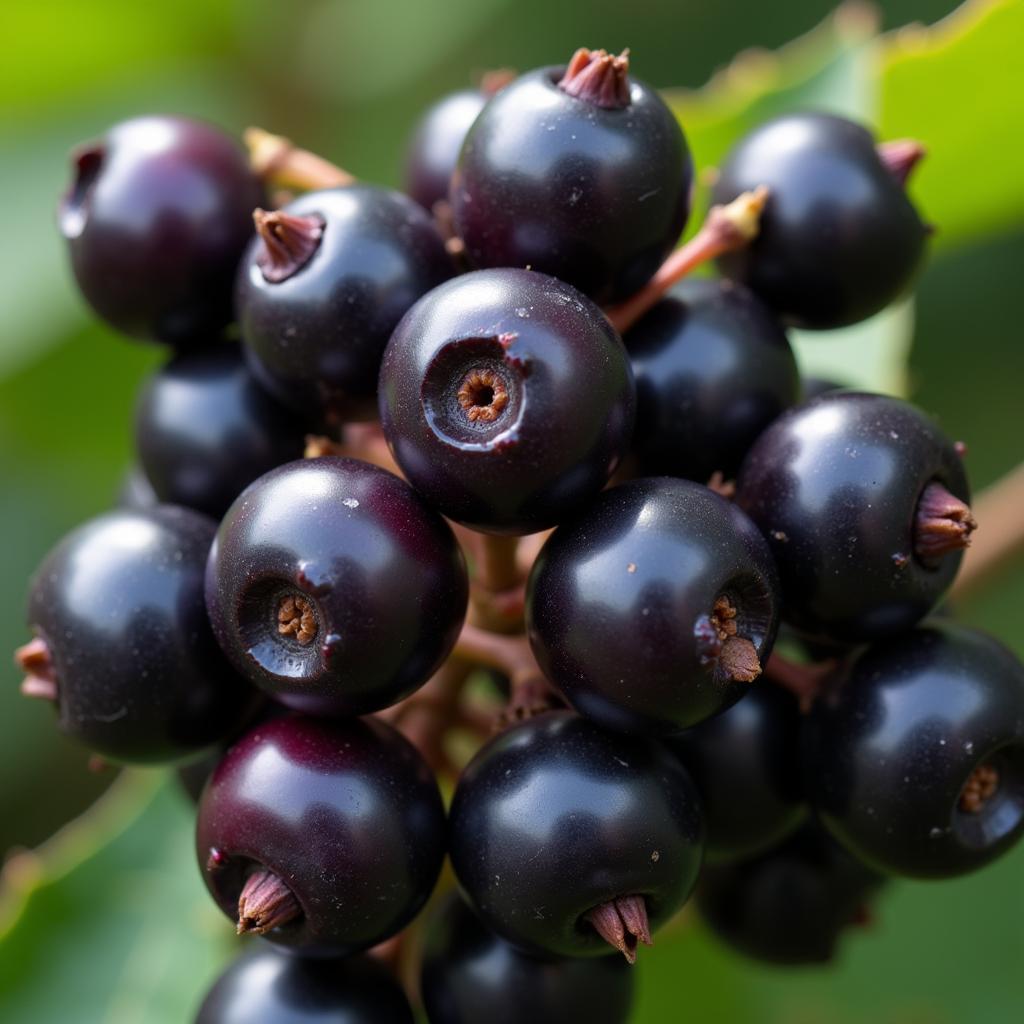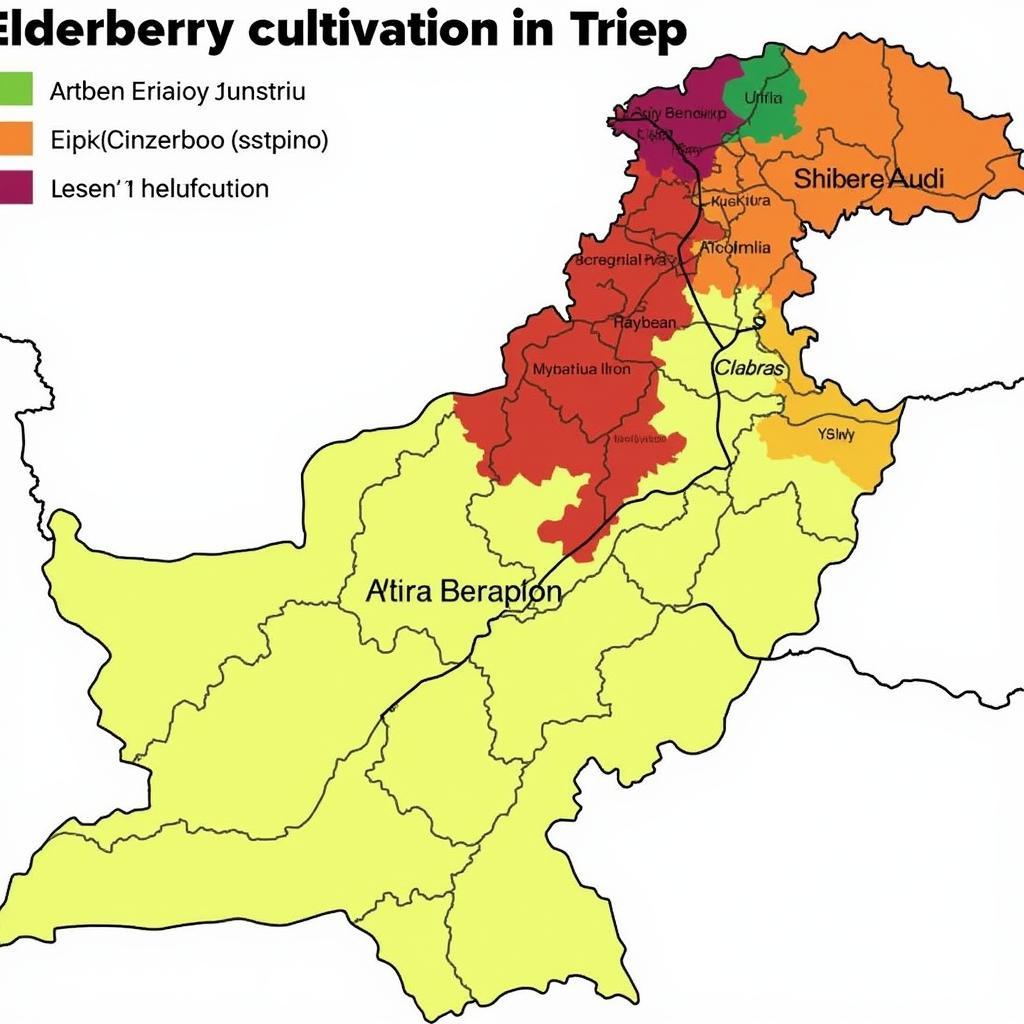Elderberry, a fruit gaining global recognition for its health benefits, remains relatively unknown in Pakistan. While not traditionally cultivated here, the growing interest in natural remedies and healthy living has sparked curiosity about this potent superfruit. Could elderberry thrive in Pakistan’s diverse climate, and what benefits could it bring?
Understanding Elderberry: A Nutritional Powerhouse
Elderberries, small dark purple berries from the Sambucus tree, have been used for centuries in traditional medicine. Their vibrant color hints at their rich antioxidant content, surpassing even blueberries and cranberries. These antioxidants, particularly anthocyanins, are believed to protect against cell damage, potentially reducing the risk of chronic diseases.
 Close-up of ripe elderberries
Close-up of ripe elderberries
Furthermore, elderberries are an excellent source of Vitamins C and A, both crucial for immune support. They also contain dietary fiber, beneficial for digestive health. These combined nutrients position elderberry as a promising natural supplement for overall well-being.
Can Elderberry Grow in Pakistan?
While not native to Pakistan, elderberry’s adaptability to various climates suggests it could potentially be cultivated here. The country’s diverse regions, ranging from the cool, mountainous north to the hot, arid plains, might offer suitable conditions for different elderberry varieties.
 Map highlighting Pakistan's diverse climate zones
Map highlighting Pakistan's diverse climate zones
Research into appropriate varieties, soil requirements, and optimal growing techniques would be crucial to determine the feasibility and success of elderberry cultivation in Pakistan. Successful introduction of this fruit could present new opportunities for farmers and contribute to a more diverse agricultural landscape.
Potential Benefits for Pakistan
The growing health consciousness among Pakistanis creates a receptive market for elderberry products. The fruit’s potential benefits, especially for boosting immunity and combating oxidative stress, align with the increasing demand for natural health solutions.
Imagine locally sourced elderberry syrups, jams, and supplements readily available in Pakistani markets. This could empower individuals to proactively manage their health while contributing to economic growth through agricultural diversification and new product development.
Cultivating Knowledge: The Way Forward
Despite the potential, limited awareness about elderberry exists in Pakistan. This presents an opportunity to educate the public about its benefits, uses, and potential cultivation within the country.
 Researchers studying elderberry properties in a lab
Researchers studying elderberry properties in a lab
Collaborations between agricultural institutions, researchers, and entrepreneurs are essential to explore elderberry’s viability in Pakistan. Sharing knowledge, conducting trials, and fostering innovation can pave the way for a brighter and healthier future, potentially with elderberry playing a delicious and nutritious role.
Conclusion
While elderberry is not yet a household name in Pakistan, its potential benefits and adaptability make it a fruit worth exploring. By investing in research, promoting awareness, and embracing innovative cultivation techniques, Pakistan could unlock the power of this superfruit, enriching its agricultural landscape and the well-being of its people.